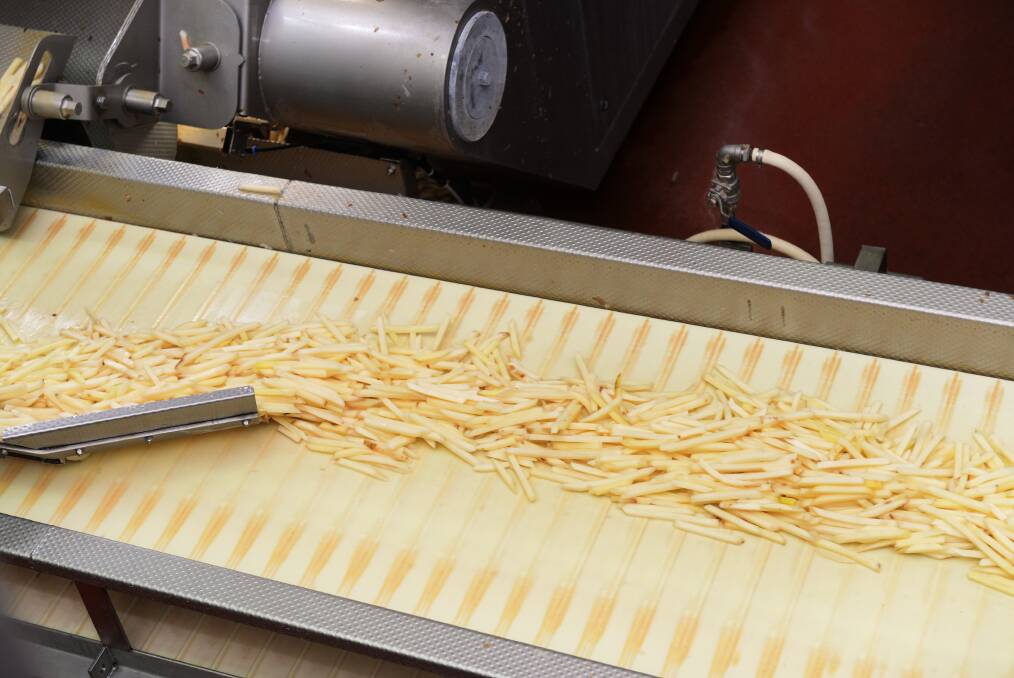Ballarat’s biggest food manufacturing plant could shut down within weeks after workers rejected a proposed industrial agreement.
Subscribe now for unlimited access.
or signup to continue reading
McCain Foods said contingencies which have kept the Ballarat plant afloat during a month of industrial action were unsustainable and could force the plant to close temporarily.
Investment in staff and equipment is now under review, plant manager Karl Thin said.
McCain workers on Thursday voted to reject the proposed EBA.
McCain has been filling the holes in its production line with about 10 fly-in fly-out workers from Tasmania and New Zealand since shortly after industrial action began.
However McCain said in a statement the company would not be changing its offer and claimed the Australian Manufacturing Workers’ Union conditions would increase the plant’s running costs by 17 per cent over three years and threaten its viability into the future.
The crunch would come if the plant was no longer be able to operate safely, forcing it to shut down until a resolution was found, Mr Thin said.
Industrial action has affected production however the company said it believed supply to customers would continue for as long as the plant remained open.
The plant employs 431 workers plus office staff.
AMWU organiser Angela McCarthy said the last week of planned industrial action would be going ahead pending a meeting with McCain on Friday morning.
Members had previously endorsed a total six weeks of industrial action.
However Ms McCarthy said it would be put to members to continue or escalate that action if a resolution could not be reached.
Ms McCarthy said members might be willing to negotiate over two minor claims, which she said were the only cost claims.
The main claims are over manning levels and restrictions that would prevent the company from contracting out further jobs, she said.
“Our members have found the company's offer to be entirely unacceptable because they have fought for years to maintain weekend penalties and they've got every right to prevent their jobs from being contracted out.”
Negotiations have been on going since April but took an ugly turn last month with allegations of stand over tactics by McCain management and an onsite injury following shifts covered by fly-in New Zealand workers.
McCain has said throughout that protracted action would threaten the long term viability of the plant, which the company says has one of the highest cost structures in the business.
Mr Thin said McCain was reviewing a number of options following the “no” vote.
Both parties claim to have negotiated in good faith and accused the other of refusing to budge.
Mr Thin said the company “cannot reasonably accept” the claims put forward by the union.
Ms McCarthy said the dispute was about ideology, not costs.
Three McCain workers are currently before the Fair Work Commission after the company contracted out their jobs without reasonable redeployment or an offer of redundancy, she said.















